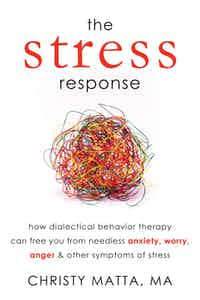Regularly missing more than one session in a month or frequently arriving ten or more minutes late can have significant consequences for your practice and for the course of therapy.
Suggestions for handling missed and late sessions:
1. Have an upfront policy. Prior to starting with a client, have them review your policies including one about your expectations for missed sessions, rescheduling and canceling sessions, and arriving late.
2. Stick to the terms of your policy. Return to and review your basic treatment agreements (including your policy on missed sessions and late arrivals). Carefully consider whether you are helping this client or whether there are other, better treatments available.
3. If you believe that you can help this client reach his or her goals, turn your focus to getting a recommitment to therapy. You can view commitment as a process and expect that reminders and recommitments are a normal and necessary part of treatment.
4. If the problem persists, make missed sessions or late arrivals a top priority of your therapy sessions. In the absence of high-risk behaviors that require immediate attention, adopt a problem-solving stance and evaluate all the factors that lead up to missed sessions or late arrivals.
If left unaddressed, chronic missed sessions and late arrivals can undermine the work you’re doing in therapy and create tension between you and your client.
 Christy Matta M.A., a trainer, consultant and writer, is the uthor of The Stress Response: How Dialectical Behavior Therapy Can Free You From Needless Anxiety, Worry, Anger, and Other Symptoms of Stress. She has worked in mental health for over 20 years and is intensively trained in Dialectical Behavior Therapy (DBT). She has presented nationally on the topic of DBT and participated in the design and clinical supervision of DBT residential programs, including a winner of the American Psychiatric Association's Gold Award. She is also an expert contributor and featured blogger for a number of websites, exploring an array of topics related to stress management, mindfulness and dialectical behavior therapy.
Christy Matta M.A., a trainer, consultant and writer, is the uthor of The Stress Response: How Dialectical Behavior Therapy Can Free You From Needless Anxiety, Worry, Anger, and Other Symptoms of Stress. She has worked in mental health for over 20 years and is intensively trained in Dialectical Behavior Therapy (DBT). She has presented nationally on the topic of DBT and participated in the design and clinical supervision of DBT residential programs, including a winner of the American Psychiatric Association's Gold Award. She is also an expert contributor and featured blogger for a number of websites, exploring an array of topics related to stress management, mindfulness and dialectical behavior therapy.
Sign up today!

 2024 Peace Playbook: 3 Tactics to Avoid Clashes with Your Partner
2024 Peace Playbook: 3 Tactics to Avoid Clashes with Your Partner